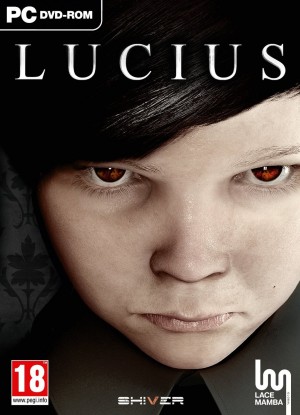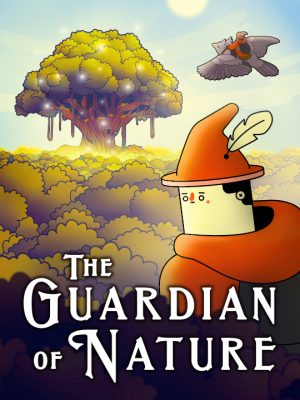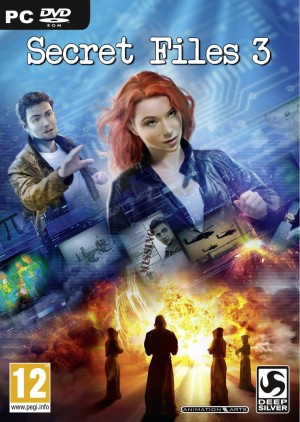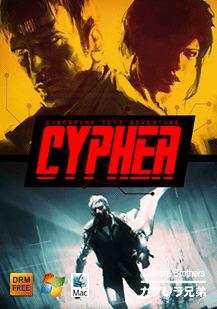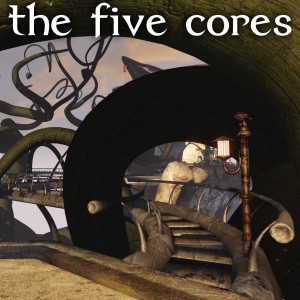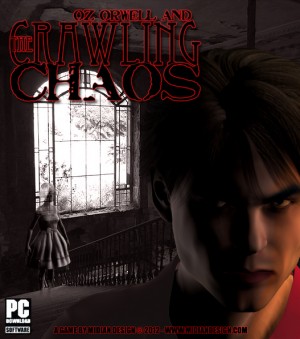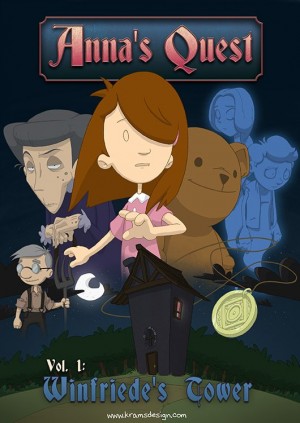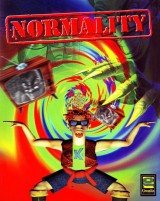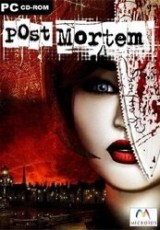Review for Lucius
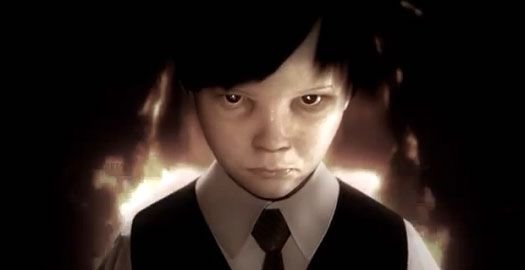
Kids can be terrifying. I think we can all agree on that. After all, why else would there be such a longstanding tradition of creepy kids in horror stories? From Damien in The Omen to the Little Sisters from BioShock, it's safe to say that if you run into a cute little kid in formal wear with a predisposition for staring and talking in weird voices (or not talking at all), you should run far, far away. Chances are they aren't smiling because they want to play "Guess Who?" with you.
In these stories, the nightmare demon-child is usually cast as the antagonist or the innocent victim who must be saved from forces beyond their control. Similarly, the vast majority of horror games position you as the victim who must escape or fight back against the their assailants. Lucius, from the aptly named Finnish studio Shiver Games, has something different in mind. This game has the window-dressing of a classic possessed-child horror story and the structure of a slasher film, except that this time, you're the slasher.
And that slasher is a six year-old child.
Lucius is the eponymous protagonist, but certainly not the hero. Born on June 6, 1966 (this isn't a subtle game) to a wealthy United States governor and his wife, Lucius is raised with silver spoon in mouth. The family estate, Dante Manor (did I mention this game isn't subtle?), is expansive and packed with servants, relatives, and close family. Lucius is a quiet child, but nothing seems too terribly out of the ordinary until his sixth birthday, when none other than Lucifer himself appears and compels Lucius to commit his first murder. That night Satan reveals the boy's true lineage—he is the Son of the Devil, and is commanded to begin harvesting souls for his true father.
So yes, this is a game about controlling a small child as he devises ways to stealthily murder everyone in a mansion on Satan's behalf. For some of you, that will be enough to tip your hat and say "Thanks but no thanks. Not my thing." For those of you who are still intrigued—you're a little scary.
The game is divided into nineteen chapters taking place over the course of several months, most beginning with a kill order from Dear Ol' Dad and ending with a body and/or explosion of viscera. Nearly every chapter follows the same formula: find out who needs to die, gather information and items until you figure out how the target needs to die, and then, ahem, execute the plan. As you work your way through your demonic hit list, the members of the household slip into insanity and depression, all while your own powers and bloodlust grow.
It's a fantastic idea for a game, and there is a solid foundation here with its fair share of memorable, satisfying moments. Unfortunately, the experience is dragged down from greatness by questionable design choices, inconsistent quality and polish, and small but pervasive bugs. As often frustrating as it is compelling, Lucius is the very definition of a mixed bag, and that's a shame.
When Lucius succeeds, it's primarily because of the developer's commitment to their unique concept. There's a lot of potential to the idea of a household beset by demons and serial murder, and the story is actually quite good. While the dialogue itself is generally tin-eared and poorly-translated, it convincingly conveys the sense of dread falling over the estate. Lucius himself never talks and has little character development, but this isn't the story of his seduction by the forces of darkness. He never questions his purpose or methods. Essentially, he's all-in from the very first murder and never looks back. That's okay—his purpose is to be creepy, and friends, he is exceedingly creepy.
The real story is the downward spiral of his family as the body count rises, and it's here that the game is surprisingly meaty. Cutscenes between chapters and overheard conversations during gameplay explore the futile attempts by the family to cope as everyone they know turns up dead in their house. Relationships are strained and minds are fractured by the trauma. The story is narrated by one Detective McGuffin, who tries desperately to explain an increasingly inexplicable series of deaths through reason and deduction. What at first seems to be a run of bad luck morphs slowly into a murder investigation and then something even darker. It's nothing new if you've seen any of the films or read the novels from which Lucius is clearly cribbing, but my initial cynicism regarding "Demon Child Murder: The Game" was stripped away when I realized it didn't run away from the personal and intellectual side of the horror. It would have been easy to focus entirely on shock and gore, and thankfully that's not the case here. Lucius's mother and father in particular are well-drawn and multi-dimensional as they try to deal with the insanity around them.
It's grim, but there's a dry humor to the game that keeps it from being utterly distasteful. There are no explicit jokes or winks from the developer, but there is a level of absurdity to the proceedings that can be undeniably hilarious. Lucius rarely kills people in simple or obvious ways. More often than not his victims die in grotesque and bizarre fashion, and the developers are more than happy to dwell on these moments with comedically drawn-out slow-motion sequences of gore flying through the air and such. Add the child's creepy, dead-eyed stare to the scene and you've got moments that are equal parts disturbing and friggin' hysterical.
So the story's pretty great, if not the actual script. The rest of the experience, unfortunately, veers between a competent adventure game and a hair-pulling orgy of frustration.
Players control Lucius in third-person, using the standard WASD keys and mouse controls. Items and people that can be interacted with are outlined in faint yellow when moused over in close proximity, and interacting with them is as simple as a mouse click. Beyond simply walking around and using objects, Lucius can store things in his inventory and combine items if necessary. In addition, over the course of the game Lucius is granted powers that can be switched out at will. These rely on an energy bar that quickly dissipates during use and automatically regenerates over time. Among these are Telekinesis, used to move objects around the environment as well as to interact with hotspots from a distance, and Mind Control, which can be used on vulnerable minds to force characters to perform certain actions (often leading to their own demise).
For the most part these powers simply involve selecting the appropriate number key, then pointing at your target and clicking. The controls are simple and work well enough, except for the abilities that rely on aiming and reflex, which feel loose and unpolished. Objects moved with Telekinesis fly around willy-nilly and never seem to end up where you want them, and the rarely-used Combustion power is only ever broken out during the game's two unfortunate "boss battles", which do nothing to undo the stereotype that there are no good action sequences in adventure games. Both are kept short, but they each provide more than their fair share of frustration. The climax, which involves weaving through narrow corridors trying to dodge enemies who cause an instant game-over if you so much as come within two or three feet of them, is not fun. At all.
The endgame wasn't the first time I was forced to restart, either. Since there are no checkpoints or saves allowed during individual assignments, failure at any time means starting again from the very beginning. Considering chapters range anywhere between 10-45 minutes in length, that could be significant. For the most part, though, failing a mission isn't hard to avoid, unless you get caught using supernatural abilities or carrying a suspicious item by another member of the household. This happened to me accidentally perhaps once during the entire game, so it's hardly a major frustration. However, there are some chapters that introduce a more immediate fail-state: For example, one chapter involves sneaking through the house at night without being seen, and failure is instant upon being caught. These are generally short sequences that aren't awfully challenging, so although annoying, they're easily forgiven considering the structure of the game. Lucius is less a game about fearing failure than about simply figuring out how to succeed.
The entire game takes place at the estate, and while some areas are occasionally locked off during specific chapters, generally you'll have the run of the grounds. Dante Manor is a large place that you'll come to know intimately after a few chapters. This is in part due to realistic design; every room has a purpose and the characters move between the rooms according to those purposes. The maids patrol about cleaning and doing laundry, the butcher stows away in the meat locker (because of course there's a meat locker), the groundskeeper can be found working on the landscaping or in the tool shed, etc. Each character even has their own bedroom, including minor servants, and you'll soon learn which room belongs to whom.
Occasionally these characters will give you side quests in the form of chores to do around the house. Doing such tasks helps with learning the layout of the mansion, in addition to the more concrete rewards: bonus items that aid you on your journey, such as a Ouija board that provides helpful hints at the beginning of each chapter. The rewards are generally useful, but the chores themselves are stupidly boring. Picking up dirty laundry, one item at a time, and walking it back to the laundry room in order to drop it in the whites or colors basket lacks even an iota of fun. At least there aren't too many chores to complete, and it doesn't end up cutting into the central gameplay too much.
Lucius is not a stunning game, visually. The lighting is generally flat, the colors are desaturated to the point of blandness, and the character models are stiffly animated and dead-eyed, but the game continually manages to be immersive simply because of its attention to detail in the manor. Every shelf and cabinet can be examined, while the posters, photos, and diplomas plastering the walls of bedrooms give you an insight into each character's personal life. One person has an easel and painting supplies in his room. A rather "friendly" maid has underwear strewn about at the foot of her bed. The father has law reference books lining his shelves next to pictures of his family and diplomas. And so on. It seems minor, but the details add up, which is a good thing, because you'll spend a good eight or more hours wandering these halls. There are some other nice touches as well—make sure to try shining your flashlight during a visit from your "true father" for one such subtle inclusion.
Sound-wise there's not much to say about Lucius: The voice acting is passable save for some pretty hammy delivery—it doesn't add much but neither does it detract from the experience. The rest of the sound design is similarly unremarkable. The effects are mostly comprised of public domain or Creative Commons-licensed sounds from internet libraries (much of the end credits are spent listing the sounds and their authors). The music is evocative and moody, with somber pianos, chanting choirs, and eerie strings, but it's also limited to a few short tracks that loop for much of the game. They're not bad, but you won't be rushing out to buy the soundtrack either.
Of course, the meat of the game is in the puzzles, which are in many ways just sadistic takes on standard adventure game tropes. There's nothing particularly innovative in the particulars—get character X into room Y so that you can use item Z—but the end result of each chapter can be darkly gratifying, shocking, or on occasion, hysterical. It sounds horrible, and it is, but there is something weirdly fulfilling about decapititating someone with landscaping equipment.
Wow, that sentence really makes me question things I thought I knew about myself.
Unfortunately, the puzzles themselves are perhaps the most frustrating aspect of the game. The act of planning and pulling off a murder in Lucius can be devilishly satisfying or frustrating as hell. (Ah ha, ha, ha, heh. Sorry.) The quality varies wildly from chapter to chapter. Some chapters guide you smoothly toward your objective with clear logic and hints picked up from ambient conversations and Lucius's own notes (which he'll jot down after finding relevant items, entering particular rooms, or observing certain characters). Others leave you running around the house with no guidance searching for something, anything to point you in the right direction—in one case literally for hours (at least for me).
Most of the time, inventory items in the environment stand out enough that you'll naturally sweep the cursor over them and notice they become highlighted. But in some cases they are so nondescript or out of the way that you'll completely pass them over. This isn't a deal-breaker when the game makes it clear you need to be looking for a particular type of item in a certain region of the estate, either through hints or a clear-cut objective. These allow you to focus your attention on a smaller part of the mansion. But in chapters with poor feedback, there is no choice but to comb over the whole environment, room by room, shelf by shelf. It's not exactly pixel hunting, but it's equally tedious and frustrating.
I'll venture one partial spoiler that you'll be glad to know in advance: In a particularly egregious example, you have to disable the laundry machine by knocking an item into it (the game only gives you the vaguest notion that something might need to be done in the laundry room). The room is full of objects that could reasonably be used to clog and break the machine, but only one particular item is interactive, and even then is only highlighted when looked at with a specific power activated. Otherwise, there is no indication that anything in the laundry room can be interacted with at all. Again, many of the chapters do not have such problems, but they crop up often enough to be a serious issue.
The technical performance is equally unpolished at times. I didn't encounter anything game-breaking, but characters get stuck on doorways and clip through doors, camera angles during cutscenes seem to miss their mark, and the Combustion spell misses direct hits as often as it registers them. Like many of the game's other issues, these glitches don't ruin the experience, but they do chip away at the overall experience.
It's also worth pointing out that this is a very, very linear game. There are no choices to make here, no multiple paths or open-ended solutions. Each chapter has one precise way that it's going to play out. That's not a problem, per se, but it does feel somewhat lacking compared to other games structured around assassinations like, say, Hitman or the recent Dishonored, which offer a plethora of ways to do horrible things to your targets.
If it isn't already clear, Lucius delves into some very dark territory. Satan worship, insanity, political corruption, suicide, adultery, sexual perversion, and, obviously, serial murder are the topics du jour. There are copious amounts of gore and blasphemy and more than a little nudity sprinkled throughout. Chances are if you're not okay with that kind of subject matter, you weren't going to play a game where you control a demonic six year-old murderer anyway, but it's worth noting. A good litmus test is probably your fondness for slasher films. If you don't enjoy watching annoying people die in hilariously over the top ways, well, this isn't the game for you.
But if the premise appeals to you, there is quite a bit to like here. Clearly the game has its flaws, and as such I can't recommend it to just anybody, but neither is it a bad game. There are some truly memorable experiences to be found in Lucius, some morbidly funny, some horrific and disturbing. For patient gamers who are forgiving of some clumsy design and sketchy production values, controlling the Son of Satan can be darkly compelling. It's a shame that such a great setup doesn't reach its full potential, but at its best it can be very entertaining. If the flaws sound like something you could get past, then get out your teddy-bear notebook, nailgun and cyanide bottle. Daddy's home from a hard day at work, and he wants some souls.
WHERE CAN I DOWNLOAD Lucius
Lucius is available at:
- GOG -90%
- HumbleBundle
- Amazon


